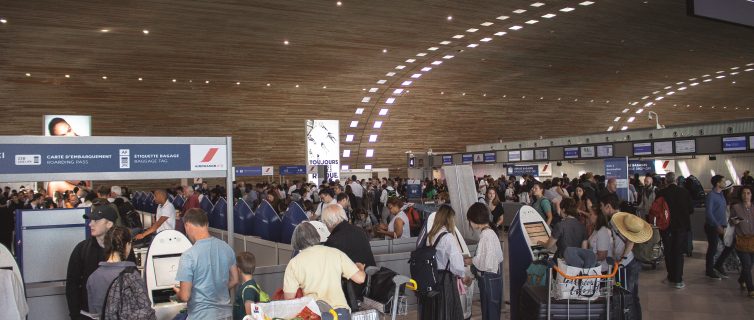Travelling and wondering if you need a VPN? Here’s your complete guide

In this article we will discuss:
- The security benefits of using a VPN while travelling
- Two security risks that VPNs help you avoid
- A quick explanation on how VPNs work
- Why a VPN is an imperative when travelling to certain countries
The security benefits of using a VPN while travelling
Whether travelling for business or pleasure, you are bound to surf the web over the course of your journeys. You may connect to a public network at a cafe or airport, or maybe you are using your Airbnb apartment or hotel’s network. The only issue with this is that those connections can be exposed to malicious parties such as:
- Personal bank accounts
- Social media
When you utilize a VPN you add an extra layer of security to ensure that only you can view the information being accessed on your device.
Two security risks that VPNs help you avoid
Risk #1: When accessing a website, users are exposed to cookies, and trackers. Those trackers follow your web browsing behaviour on each individual site, which is why you may be shopping for a specific product online, and then see ads for that exact same item when you are on a completely unrelated site. When you use a VPN, you can not be targeted in this way by advertisers who follow your browsing activity, habits, and interests.
Risk #2: All of your internet activity is routed through your Internet Service Provider (ISP), and as such they can see your browsing activity online. Using a VPN helps to encrypt your data such that ISPs can only deliver your mail without actually being able to read your letters (otherwise known as ‘tunneling’).
A quick explanation on how VPNs work
To understand how a VPN works, it is best to think of it as a satellite up in space that serves as a middleman, redirecting traffic between end clients on earth. Except that instead of sending an open signal, VPNs encapsulate it, locking it with a key that only you and the end client on earth have access to. The request capsule is then anonymously swapped when it reaches the satellite, and sent to the party you are trying to retrieve information from. When a response is given, this same protocol is followed in reverse order. This is ‘tunneling’, and ‘encryption’ in a nutshell, ensuring that your VPN service or a third party for that matter, cannot view your requests or responses even if they are intercepted.
Why a VPN is an imperative when travelling to certain countries
Say you are travelling to a country where certain social or dating apps are blocked or represent unacceptable social behaviors. A VPN could then help you access those sites that are readily available in your country of residence when abroad. Additionally, people who are socially or politically active may not want to expose themselves vis-a-vis their IPs so that they can freely express their ideas.
When installing a VPN on your devices before travelling to such a country one can simply turn it on once they have landed, and start redirecting their traffic from a different geography. For example, if you just landed, and want to check your G-mail, you can turn on your VPN, and use a London-based IP address in order to freely flip through email communications.
The bottom line
VPNs have many practical uses when travelling abroad either for work or pleasure. There are many options on the market now, sadly not all of them work, and many people only find this out once they are already 5,000 miles away from home. Additionally, many VPNs choose to charge for their services despite having additional monetization options.
Why settle for less when you can have the best?
